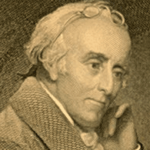International Students for Liberty Conference
Marriott Wardman Park, Washington DCBRI sponsored a table, making many contacts and gaining an inquiry into a 2nd international chapter in Tel Aviv, Israel.
BRI sponsored a table, making many contacts and gaining an inquiry into a 2nd international chapter in Tel Aviv, Israel.
 BRI is proud to be partnering with American Enterprise Institute to bring you
BRI is proud to be partnering with American Enterprise Institute to bring you 
Why did you decide to become a doctor?
Do you say that you want to help people in a meaningful way that also is personally challenging? We think that's a great description of what it means to practice medicine. What can be better than the excitement of really cool applied science, the challenge of life-long professional growth (there's always something new to learn), and—most importantly, the privilege of caring for people through some of the most joyous and tragic events of their lives?
As doctors, we are privy to life's most powerful and intimate moments . . . watching a child be born . . . holding the hand of a dying patient . . . listening to the struggles of living with a chronic disease . . . the look of relief and gratitude after a successful surgery.
And let's not forget the incredible experience of working as part of dedicated team — in our offices, hospitals, charity clinics, and medical missions.
Yes, being a doctor in America is a great vocation.
Yet, American medicine is at a crossroads. Concern over access, quality, and affordability have many turning to government to supply solutions — at the risk of impeding innovation, burying physicians in burdensome regulations, ratcheting back pay, interjecting bureaucratic mandates that get between doctors and their patients, and reducing a doctor's ability to practice medicine according to his or her own experience, judgement and skills.
At BRI, we declare that there exists a need to reinvent physician leadership in an age of teamwork. There is an urgency for doctors to be stronger, more vocal leaders, not only among medical colleagues, but in the wider community. There's a very real need for a new kind of doctor, as a leader and advocate for those who have been priced out of affordable medical care. That means physicians need to understand economics to be able to advocate effectively for policies that produce lasting improvements for everyone, not ones that simply make us "feel good."
This will require a new kind of doctor—one who not only practices medical excellence, but who also adds a voice of leadership so desperately needed in today's healthcare climate.
That's what this year's conference is all about: Earned leadership, with non-paternalistic, informed compassion and effective advocacy.
Dr. Beth Haynes, BRI executive director, delivers a talk at ATLAS Summit 2016 @ Freedom Fest: What Insurance Is and Isn't—Getting Medical Costs Under Control.
There is much talk about how to control medical costs. Medical inflation continues to outpace general inflation. Why this is happening has much to do with the fact that what is called "health insurance" really isn't insurance. We argue that coerced wealth distribution is immoral, but this argument does not resonate with everyone. Being abel to also argue the economic aspects of healthcare can strengthen your ability to make the case for freedom in medical care. Come learn about the nature of insurance, what it is and isn't, why current health policy is doomed to fail, and what better alternatives exist.
Dr. Beth Haynes, BRI executive director, delivered a talk at ATLAS Summit 2016 @ Freedom Fest: Engaging Our Future Physicians.
It is important that we undertake the task of engaging our future physicians. What are they learning about health policy? Given the state of higher education today, it's no surprise that health policy instruction at medical schools is government-centric. But what is surprising is how little formal policy instruction students receive, which presents a great opportunity to interject the voice of reason into the conversation. Benjamin Rush Institute is doing exactly that. In just the fall semester of 2016, we reached 1300 medical student5s. Come hear how we are presenting the ideas of individual rights and limited government in a way that even liberal medical students are wiling to consider these alternatives.
Dr. Beth Haynes, BRI executive director delivered a talk at the 2016 ATLAS Summit @ Freedom Fest, What About the Poor? How to Win the Debate Without Selling Your Soul.
In order to engage those who are skeptical but potentially persuadable to free market ideas, we need to answer concerns about what happens to society's most disadvantaged in a powerful, truthful and compelling way. This is a major concern of young people, who frequently have a strong desire to help others, but who are typically economically ignorant and think with their hearts. In order to reach them we need to address their concerns without compromising on our fundamental principles. Come learn what tactics are working with students and are applicable to a much broader audience.
Imagine your excitement as a parent getting ready to attend your child's graduation from medical school. Instead, you attend his funeral--yet another medical student suicide victim.And statistics show no improvement even when a medical student becomes a doctor.
"Medical student and physician suicide is an epidemic. It is estimated that 400 doctors die by suicide in the United States each year. That's the equivalent of an entire medical school gone! The second leading cause of death among medical students is suicide--a well-known occupational hazard in medicine. Yet no medical organization is tracking these suicides. Why? And how can we solve a problem when it's hidden from us?"
The more awareness we raise, the more we can speak with one voice--a voice of solidarity--to find the root causes of physician and medical student suicide, and promote solutions to turn the tide.
Fulfilling a life's passion to care for others shouldn't mean personal suffering--or worse.
Benjamin Rush Institute sent nine medical students to the American Academy of Private Physicians annual Direct Primary Care conference.
Dr. Beth Haynes, BRI executive director, moderated a Docs 4 Patient Care panel on health policy in a breakout session. CON laws and other aspects of healthcare policy were discussed.
From the SPNAM.org official website: The SPN Annual Meeting started in 1993 in Traverse City, Michigan. A dozen people met in a room with the hope of building a robust network of state think tanks throughout the country. Today, the SPN Annual Meeting brings together over 900 people from around the country, including state and national leaders, influencers, and professionals.
We believe that being good enough is not enough to win in the rapidly evolving political environment. We can’t afford to be outgunned, outmanned and outspent. The future of the country depends on it.
That is why the State Policy Network has hosted the Annual Meeting for 23 years running.
This year, the Annual Meeting is returning to the state where it all started. Freedom fighters will gather in Grand Rapids, Michigan, with an intentional focus on developing the solutions and skills to advance freedom at both the state and national level. Through the lens of our 2015 theme – Experience Freedom – we will consider ways to sharpen our solutions and strategies and help our core audiences envision their need for freedom. We will inspire and challenge ourselves to give Americans opportunities to experience the benefits of freedom to their everyday lives.
The program focuses on building leaders, refining operations, cultivating excellent communication and outreach strategies, analyzing policy priorities and training top-notch fundraisers. The SPN Annual Meeting is also the only outlet where state and national leaders can chart collaborative strategies together. SPN purposefully creates an environment to facilitate connections and build coalitions.
A conference to educate and inform physicians, future physicians and healthcare professionals about Direct Primary Care medical delivery options.
Doctors are called upon to treat the sickest of the sick, often in conditions that demand the most of the strongest human beings. Yet, even in America with some of the best medical conditions in the world, doctors are still called upon to serve, heal, and respond—over and over again—usually with no thought for their own well-being, endurance, or limitations.
Medical students are also found in similar situations: forced to the brink of their mental, emotional, and physical capacity, to study, learn and perform on cue . . . and they do this because they want to serve people.
So, how do we take care of our doctors and medical students? Based on the sheer number of healthcare professionals who drop out of school, out of their practices, or —worse yet, out of life itself through suicide—the answer is: not well at all.
At the Benjamin Rush Institute annual student leadership conference, we will present concrete, workable and proven ways to improve healthcare for all, and above all, heal our healers through the patient-doctor relationship.
Can expanding the scope of practice for non-physicians increase access to high-quality primary care and help lower healthcare costs? Are Missouri’s new Assistant Physicians able to provide safe, high-quality care?
Patients Rising University Conference: Focus on Multiple Sclerosis at Mission Bay Conference Center.
Patients Rising University: Spotlight Multiple Sclerosis is a patient/consumer education event. We will bring together patients, advocates, medical experts and policy leaders to offer a comprehensive look at innovation, access and the health care reforms needed for patients living with multiple sclerosis.